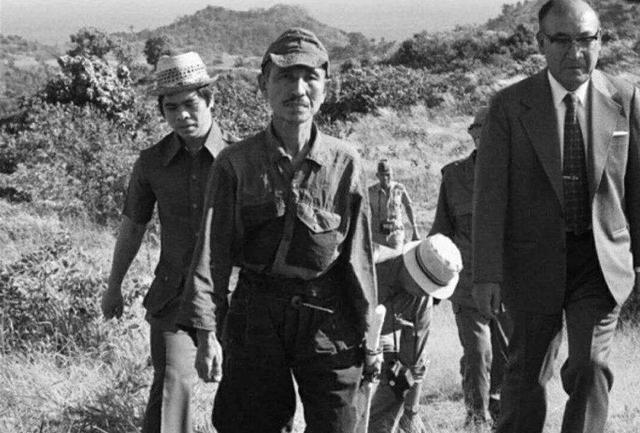During the War of Resistance Against Japanese Aggression, the confrontation between China and Japan never stopped, although Japan had various advantages in all aspects, but in the end China was still able to use millet plus rifles to safeguard its national sovereignty, and was able to drive the aggressors out of China, which also showed the courage and wisdom of Chinese in this regard.

After Japan's surrender, China gained the support of peace-loving people around the world, but in the final period of Japan's surrender, one person became the focus of attention. This man did not appear on the battlefield of China, he was the last Japanese soldier to surrender during World War II. He was on a small island in the Philippines at the time, and he did not receive orders from his superiors until 1974, when he actually surrendered.
But this last surrendered Japanese soldier had already emigrated to Brazil shortly after returning home, so did this person love Japan or not?
Japan announced its surrender around 1945, and after that, Japan fell within the scope of a long period of international condemnation. But only one of these people, a Japanese soldier, was an exception, and his name was Onoda Hiroshi. What was Japan doing after it announced its surrender?
In fact, his life was not as good as we thought, but he lived in the jungle for about 30 years. This kind of jungle life is not as simple as we think of jungle exploration. He kept shuttling through the rainforest, and even a single person did not forget to practice, thinking about carrying out the war to the end every day. Such a fighting fanatic is indeed a strange existence. In addition to these acts of his, he even caused more than 30 casualties among the Filipinos during his 30-year non-surrender career, which shows that he is indeed a guilty person full of evil.
I believe that such a person, when we look at it now, will definitely sentence him to life imprisonment or even be shot. But Onoda, at that time, because of this series of actions and his inability to communicate about the battle, led to his thirty-year life, which in itself was a test for him. In addition to this, his level of loyalty also touched the local Philippine government, so it gave him the right to go home. But this man never believed that the battle was over, nor did he believe that Japan had surrendered, so he chose to resist to the end. In order to completely liberate this stubborn and poor man, they brought in his former commander and gave him the order to surrender, and he truly surrendered to the Philippine government.
Speaking of this, I believe that everyone must think that there must be something wrong with this person's head, after all, everyone has surrendered and even found someone to persuade him, and as a result, he has not listened, which is indeed a diehard. However, the Philippine government believed that his series of actions could be called a model for the army, so it gave him the opportunity to go home.
But after this person returned home, he could clearly feel that he was out of touch with the times. The 30-year gap made him unable to adapt to his current life, like a wild child who was thrown into the wolf pack, he could not be a normal person, so he was limited in all aspects. Although the Japanese side praised and encouraged him at the time of his return, as a fanatic whose thinking was completely out of touch, he could not adapt to some changes in the japanese political system and military, so he believed that Japan was not a place where he could really survive forever.
In the end, he chose to immigrate to Brazil, and the reason why he chose this place is because the Brazilian region has a relatively deep connection with most of the immigrant masses in Japan. So after he went to Brazil, he not only developed 1,200 hectares of land, but even raised more than 8,000 cattle. This move can be said to have shocked the world, but his success was not only that, he even donated $10,000 as a scholarship to the local island in the Philippines.
He did this because of the people he had hurt and caused irreparable damage because of his actions, but his donation of this money did not mean that his actions were wrong. He believed that as a soldier, obeying orders was his vocation, and that he continued to resist without receiving orders was something a soldier should do. Such a contradictory and entangled person, until the moment of death, he still could not understand why the Japanese side chose to give up the battle.